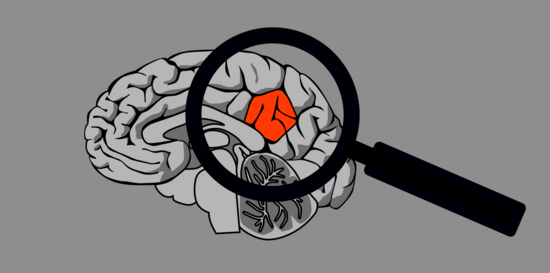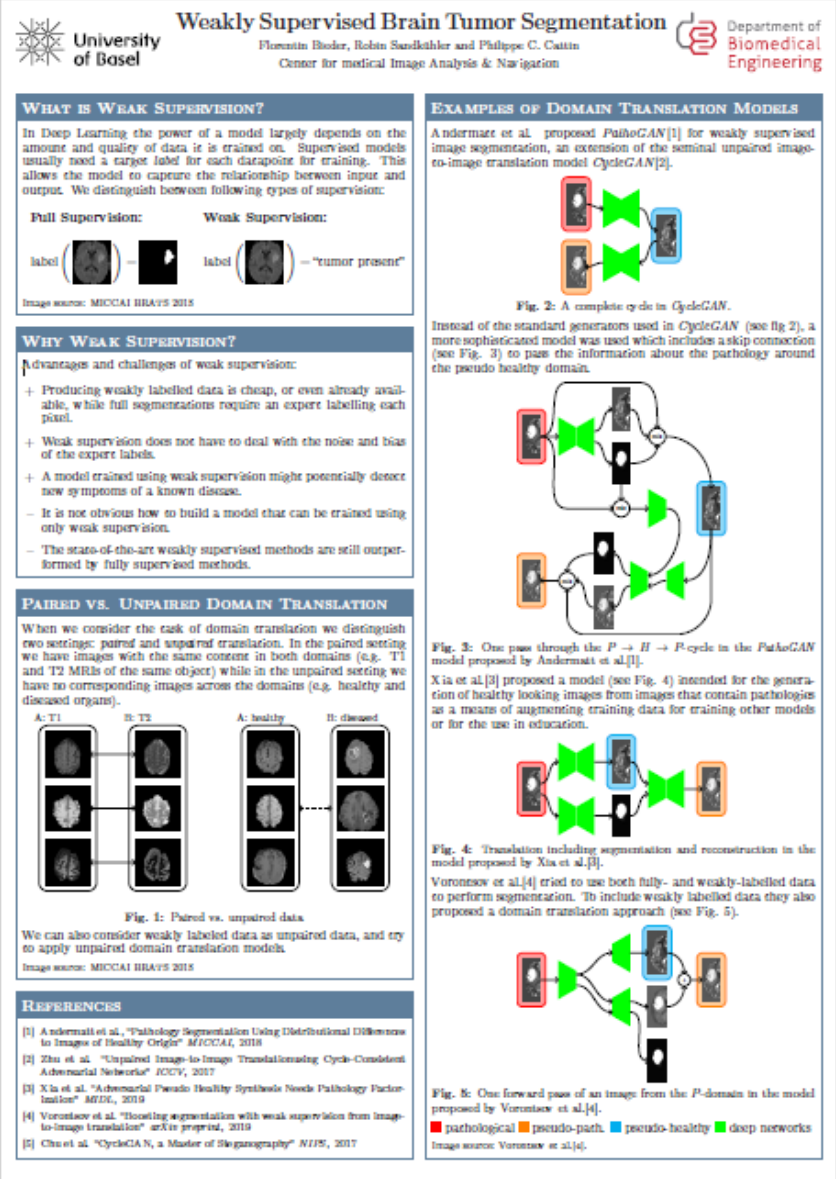Weakly Supervised Image Segmentation
Medical image segmentation is an important step in the analysis of medical images. It allows for accurate measurements, for instance of the development of diseases that cause lesions in some tissue. It is, however, a very repetitive and time-consuming task for the physicians. Research for the automation of this task has made a lot of progress since the recent advances in the development of deep learning techniques.
Today, there are deep learning models that outperform humans in many segmentation tasks. One drawback is that they rely on large amounts of data that include manual segmentations. This is expensive and makes the methods vulnerable to human biases.
We seek to solve this problem by using weak supervision: We are developing methods that do not need reference segmentations - instead we try to leverage the distributional differences in images of patients that exhibit symptoms of a disease and images of a healthy control group. Specifically we try to detect and segment brain tumors in MRI scans.
On the one hand, this allows us to use data that is readily available, and on the other hand, this eliminates human biases and might lead to the discovery of new manifestations of a given disease.
Project leader: Florentin Bieder






